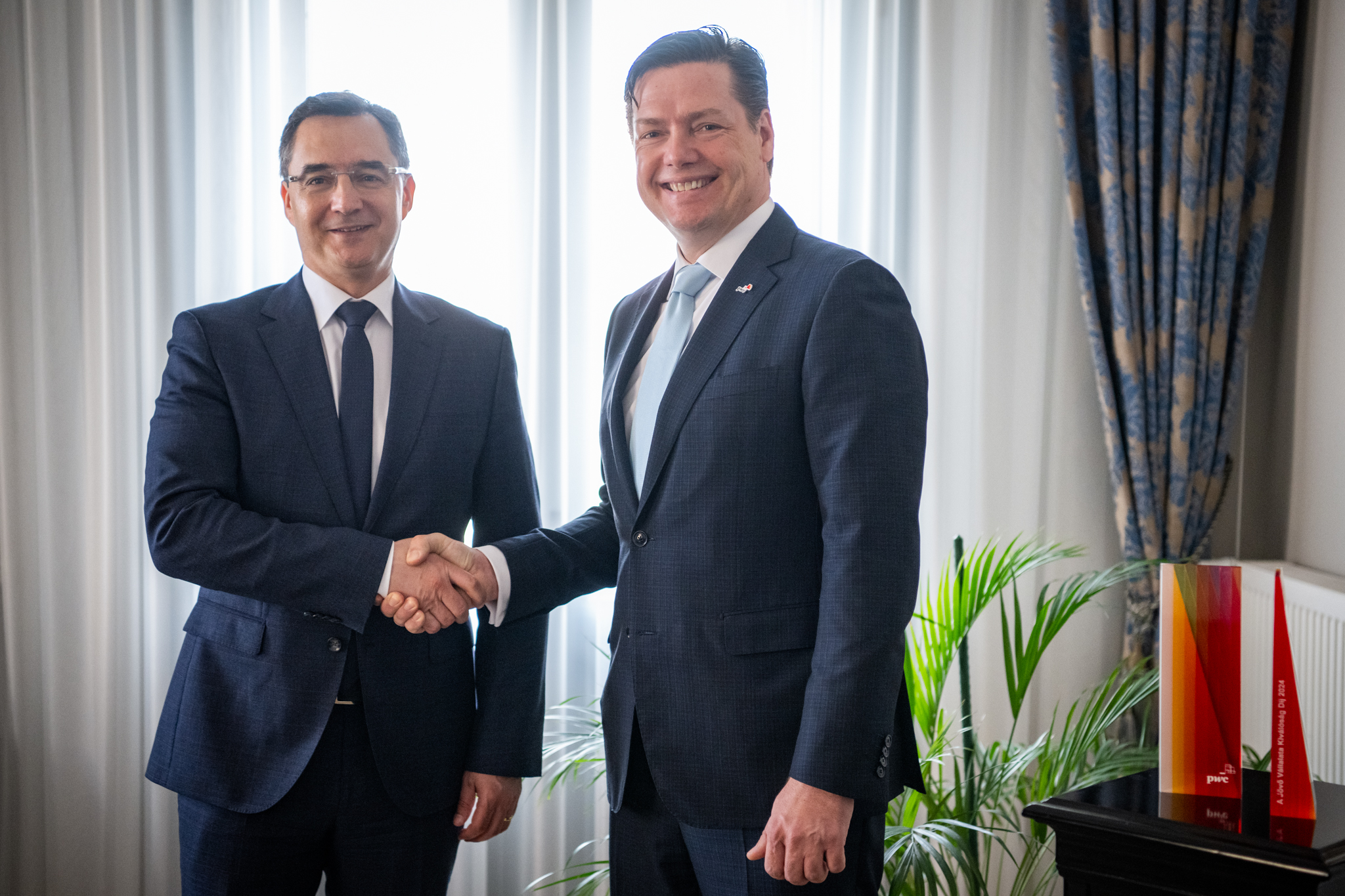Forging a way Through the Coronavirus Challenges

Since the outbreak of the coronavirus pandemic, the health of employees and business continuity have become the number one priorities of major manufacturers in the automotive and related sectors, who have now gradually begun resuming production in Hungary.
Róbert Hosszu, general managerof NI Hungary.
Less than a month after its halt on March 22, Audi Hungaria resumed operations gradually from April 10. Work restarted with the production of engines, followed by autos and work in the press plant, the body and paint shop, and vehicle assembly from April 27, when 2,000 workers resumed work initially in one shift.
Overall, 5,000 employees are working either on site or from home. The employees who are not working at the moment are on leave ordered by the company. Audi says it has transformed working spaces according to health regulations and introduced a number of technical and organizational measures to protect the health of its employees, including the introduction of more shuttle buses (which are disinfected regularly) and take away food.
Regarding COVID-related activities, the idea of staff to make parts for protective masks using a 3D printer should be highlighted, Audi Hungaria told the Budapest Business Journal. The company works closely with the group’s other production sites. The first prototypes have already been manufactured and are currently being centrally validated.
In addition, Audi Hungaria has previously supported the purchase of two ventilators in its Hungarian hometown of Győr (121 km northwest of Budapest), and donated personal protective clothing for healthcare workers.
A wide array of protective measures has also been introduced at the Mercedes-Benz factory at Kecskemét (92 km southeast of the capital), where after a few weeks’ break, production restarted at the end of April. Keeping a 1.5-meter distance in all areas (on shuttle buses, inside the factory, when entering the site, etc.) is crucial, as well as wearing the washable masks the company has provided their workers with.
Overall, the automaker has introduced 120 measures to keep and protect the health of the company’s 4,400 workers. Production is being scaled up gradually, first in one, then two shifts.
Opel, a General Motors brand when it first opened up in Hungary, but a subsidiary of French automaker Groupe PSA since August 2017, paused its operations in Szentgotthárd, where it produces engines, on March 23.
It, too, is gradually restarting work by enforcing safety measures such as checking body temperature, wearing protective glasses and masks or keeping doors at workstations and rest areas open to avoid touching points of contact. Incoming parts are “rested” when they arrive, and changes of shifts are scheduled in such a way that prevents workers from meeting.
Adapting
With constant customer orders and raw material supply, Knorr-Bremse Vasúti Jármű Rendszerek Hungária Kft. says it continues to operate by adapting to the current situation under a strict a health protocol and a special work schedule.
“Following the declaration of the state of emergency, we ordered home office for all our colleagues whose physical presence was not essential for our operation,” a Knorr-Bremse spokesperson tells the BBJ.
The separation of workers in time and space and regular disinfection of working areas between shifts are just a few of the measures introduced. To ensure continuous production, the company has also diversified its parts and raw material supply. Thanks to its financial stability, Knorr-Bremse has not had to lay off any employees, and says it is not planning to do so.
“We are proud of the Hungarian engineering performance and the production of high value-added products. The commitment of our development engineers is indicated by the fact that they have sought, through volunteer work, the opportunity to be able to provide an oxygen supply unit to temporary hospitals in the event that the country needs it,” the company told the BBJ.
NI Hungary started what it thought would be a well-planned, busy year in 2020, with several strategic goals to accomplish, including the further innovative development of its Debrecen site (231 km east of Budapest) where, in the past few years, emphasis has shifted from producing electrical installations to be assembled by their customers to producing entire systems.
Continuous production and delivery have not stopped, despite the challenges caused by the pandemic. Only a few long-term strategic project planning processes were put on hold (and then for about two weeks only), but right after proactively introducing new working methods, all these goal planning activities were back on track as well.
Strong Culture
The key to the continuity is the strong corporate culture and a very cooperative team which have helped smooth adaptation to the new conditions, general manager Róbert Hosszu told the BBJ.
“We were quick to react. We have two main priorities: Caring for the health and safety of our NI team members, their families, and our communities, and doing everything we can to help take care of the needs of our customers and partners,” Hosszu explained.
“Well before the first patient had been registered in Hungary, we suspended all international travel to and from our site.”
NI Hungary set up a crisis team at the end of February which, in cooperation with the management and employees, worked out a crisis strategy. This, amongst many other steps, included the isolation of different functions at the site.
Home office has also been introduced for more than 700 people; after some adjustments at the very beginning, the IT system is now working well with no hiccups, even under such heavy load, the company says. It has also helped some manufacturers that started to produce ventilators by providing them with testing systems at very short notice.
“If a company can finance its operations today, in the medium-term it may be more a question of how it keeps pace with market growth,” Hosszu says. “Thanks to the wide spectrum of our products and clients, we are well positioned to endure this period and NI remains committed to connecting engineers with the tools and resources they need, while also supporting its employees and their local communities around the globe.”
SUPPORT THE BUDAPEST BUSINESS JOURNAL
Producing journalism that is worthy of the name is a costly business. For 27 years, the publishers, editors and reporters of the Budapest Business Journal have striven to bring you business news that works, information that you can trust, that is factual, accurate and presented without fear or favor.
Newspaper organizations across the globe have struggled to find a business model that allows them to continue to excel, without compromising their ability to perform. Most recently, some have experimented with the idea of involving their most important stakeholders, their readers.
We would like to offer that same opportunity to our readers. We would like to invite you to help us deliver the quality business journalism you require. Hit our Support the BBJ button and you can choose the how much and how often you send us your contributions.








